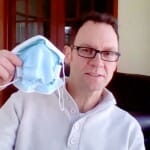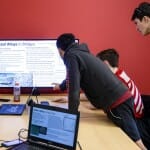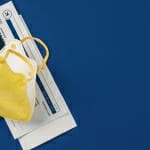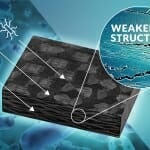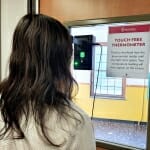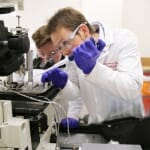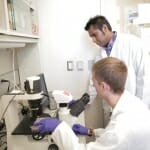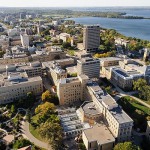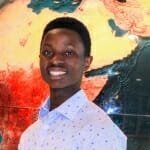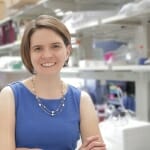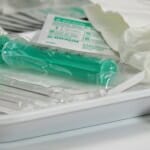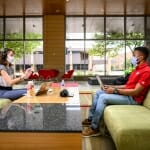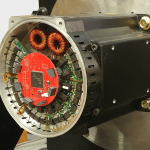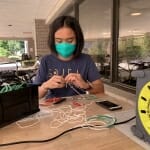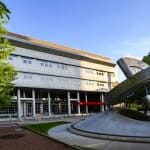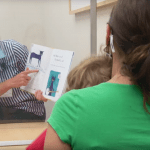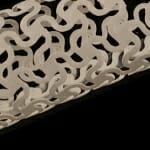Tag College of Engineering
Badger Talks video: The right type of mask
In this Badger Talks interview, mechanical engineering professor Scott Sanders talks through some of the mask-fitting guidance. Read More
Materials science is a natural fit for Wisconsin manufacturing
Not only are top UW–Madison materials science students sought after by industry, but breakthroughs in materials developed at the university often have direct impacts on local businesses. Read More
Badger Talks video: The future of travel
The start of mass vaccination for COVID-19 has raised the exciting prospect of being able to travel again in the near future. In this Badger Talks video, Laura Albert, professor of industrial and systems engineering, talks about what we can expect as we return. Read More
Common microbes team up to degrade polymer composites
The study may help structural engineers to understand environmental stressors of polymer composite materials and how to design them to resist microbial degradation. Read More
Contactless thermometer helps monitor student health
A prototype “contactless” thermometer was created by borrowing the sensor from a commercially available thermometer and adding a microcontroller and distance sensor controlled by open-source code. Read More
Research effort driving advances to combat traumatic brain injuries
A team of researchers led by University of Wisconsin–Madison mechanical engineer Christian Franck is working on better ways to detect concussions and better protective equipment to prevent them. Read More
UW researchers honored as inventors
UW–Madison’s newest trio of fellows in the National Academy of Inventors are responsible for scores of patents, and bring the university’s total academy membership to 10. Read More
New game helps refugee camp kids become academic ‘stars’
Once a refugee himself, senior Joel Baraka has invented "5 STA-Z" — a board game for students across sub-Saharan Africa that turns learning into fun. Read More
Badger Talks video: Working women and the pandemic
In this Badger Talks interview, engineering professor Pam Kreeger discusses why it’s important for women to be okay with saying no and why it’s so crucial to know your own needs and what it takes to stay healthy and balanced. Read More
UW–Madison senior among finalists for 2021 Rhodes Scholarship
University of Wisconsin–Madison senior Alex Plum competed this year as a finalist for the Rhodes Scholarship, the oldest and most celebrated college award for… Read More
Fitter increases the benefits of wearing a mask during the COVID-19 pandemic
A team of UW–Madison engineers has developed a simple and inexpensive do-it-yourself fitter that ensures a tighter mask seal around the wearer’s nose, mouth and face. Read More
The Grainger Foundation pledges $32 million to UW–Madison College of Engineering
The funding is aimed at attracting a diverse pool of students and faculty leaders and to create the Grainger Dean of the College of Engineering endowment. Read More
Grad student helps with PPE production, COVID response in developing countries
With support from the UW–Madison International Projects Office, Rebecca Alcock is leading a small team that’s consulting with government officials, healthcare systems leaders and local manufacturers in Guatemala, Yemen, Malawi, the Maldives and Sudan on design and production of PPE like face shields and masks, medical equipment such as ventilators, and water, sanitation and hygiene infrastructure. Read More
New shield couples COVID-19 protection with a clear view of the face
The team that created the popular Badger Shield medical fac e shield has now created a new version that provides a full, clear view of the face while still filtering virus particles through surgical fabric that cinches around the wearer’s chin and jawline. And again, they're sharing it with the world. Read More

